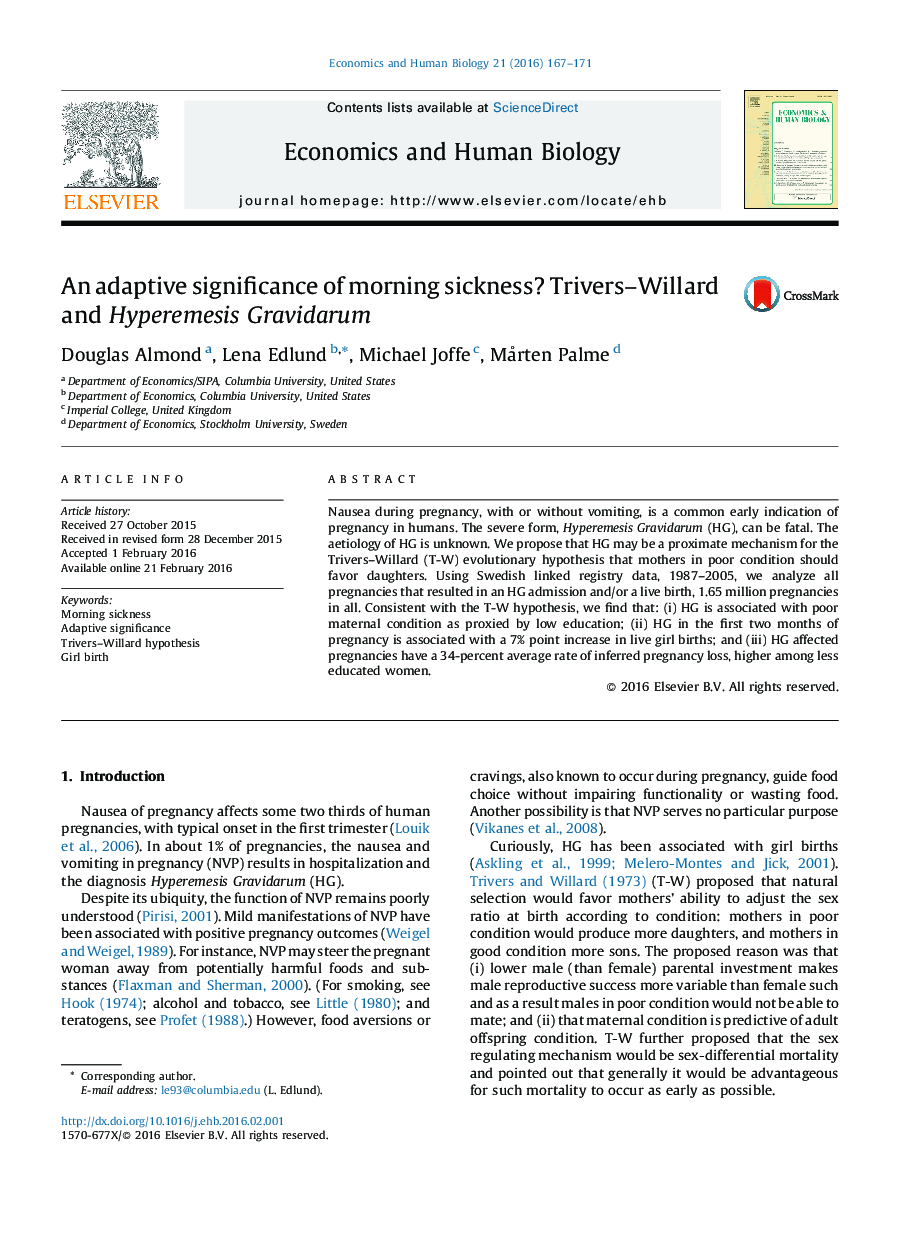| Article ID | Journal | Published Year | Pages | File Type |
|---|---|---|---|---|
| 5056862 | Economics & Human Biology | 2016 | 5 Pages |
â¢Morning sickness is common in early pregnancy but is of unknown aetiology.â¢Its severe form, Hyperemesis Gravidarum (HG), requires hospital admission.â¢Using Swedish register data, we show that HG is more common among low education mothers.â¢We confirm a strong girl bias among live births following HG in pregnancy.â¢HG may be a proximate mechanism for the so called Trivers-Willard hypothesis.
Nausea during pregnancy, with or without vomiting, is a common early indication of pregnancy in humans. The severe form, Hyperemesis Gravidarum (HG), can be fatal. The aetiology of HG is unknown. We propose that HG may be a proximate mechanism for the Trivers-Willard (T-W) evolutionary hypothesis that mothers in poor condition should favor daughters. Using Swedish linked registry data, 1987-2005, we analyze all pregnancies that resulted in an HG admission and/or a live birth, 1.65 million pregnancies in all. Consistent with the T-W hypothesis, we find that: (i) HG is associated with poor maternal condition as proxied by low education; (ii) HG in the first two months of pregnancy is associated with a 7% point increase in live girl births; and (iii) HG affected pregnancies have a 34-percent average rate of inferred pregnancy loss, higher among less educated women.
